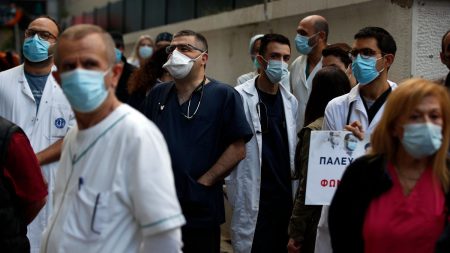Commissioner-designate Olivér Várhelyi faced significant challenges in his bid to oversee the health and animal welfare portfolio within the upcoming EU executive branch. Following a rigorous evaluation by EU lawmakers, Várhelyi was stripped of vital oversight concerning reproductive and sexual rights and health preparedness. This decision came after an extensive three-hour hearing where members of the European Parliament (MEPs) expressed considerable dissatisfaction with Várhelyi’s responses. They found his views on abortion — which he framed as primarily a constitutional and human rights matter rather than a health issue — to be untenable given that reproductive rights are viewed as integral to the EU’s health policy framework. Consequently, MEPs opted to postpone their decision, opting for additional written clarifications on Várhelyi’s suitability for the role.
In their ultimate assessment, MEPs decided to revoke Várhelyi’s oversight of the European Commission’s health preparedness service (DG HERA). This service, established in the wake of the COVID-19 pandemic, is essential for preparing and managing future health crises. Despite this substantial reduction in responsibilities, Várhelyi will still maintain control over other health-related areas, including food safety, pharmaceuticals, tobacco legislation, and animal welfare. The critical questions raised during his evaluation have led to formal requests directed at European Commission President Ursula von der Leyen, compelling her to amend Várhelyi’s mission letter and potentially reassign his responsibilities.
The likely candidate to inherit the responsibilities related to sexual and reproductive rights, in addition to health preparedness, is Belgian Commissioner-designate Hadja Lahbib. Currently set to manage crisis management for the EU, she could significantly influence health-related crisis protocols and ensure alignment with the broader health services in the Commission. MEP Vlad Voiculescu noted the need for collaboration on the forthcoming Critical Medicines Act — a vital legislative initiative for enhancing pharmaceutical resilience — remarking that the conditions of oversight would be better served by someone like Lahbib, whose values seem more in line with EU principles compared to Várhelyi.
Critically, the decision to limit Várhelyi’s portfolio has raised concerns about his ability to effectively lead initiatives such as the Critical Medicines Act. The intervention by the MEPs showcases a broader alignment among the liberal, socialist, and centre-right groups in the European Parliament, echoing the heightened sensitivity surrounding reproductive and sexual health rights. German socialist MEP Tiemo Wölken strongly opposed Várhelyi’s stance, emphasizing his previous affiliations with right-wing politics and affirming the importance of excluding his influence over sensitive health topics. Wölken’s comments reflect a consensus among progressive lawmakers that safeguarding such rights is paramount and should not fall into the hands of those associated with right-wing governments.
Conversely, some members of the European Parliament, such as Spanish far-right MEP Hermann Tertsch, criticized the decision as evidence of the European People’s Party (EPP) conceding to left-wing ideology, lamenting that their actions marginalized Várhelyi. His remarks indicate an underlying tension between political factions within the Parliament — showcasing how Várhelyi’s affiliation with Hungary’s ruling Fidesz party could be seen as both a liability and a point of contention among various EU member states. The assessments regarding Várhelyi were encapsulated in a broader negotiation to secure the approval of the next Commission, cementing a complex dynamic where health, political representation, and ideological differences intersect.
As the European Parliament moves forward with its final confirmation of the new EU executive, it becomes evident that the reevaluation of positions such as Várhelyi’s reflects wider activities and debates within the institution. The collaborative approach taken by the three main political groups points to the importance placed on both health policy and the ideological alignment of those overseeing it. The unfolding narrative not only addresses individual qualifications but also lays bare the political implications of public health governance in Europe, drawing connections between the handling of reproductive rights and the comprehensive health strategies needed to prevent future crises. This intricate interplay highlights the continual need for vigilance in upholding EU values, particularly in the context of diverse political aspirations across member states.














